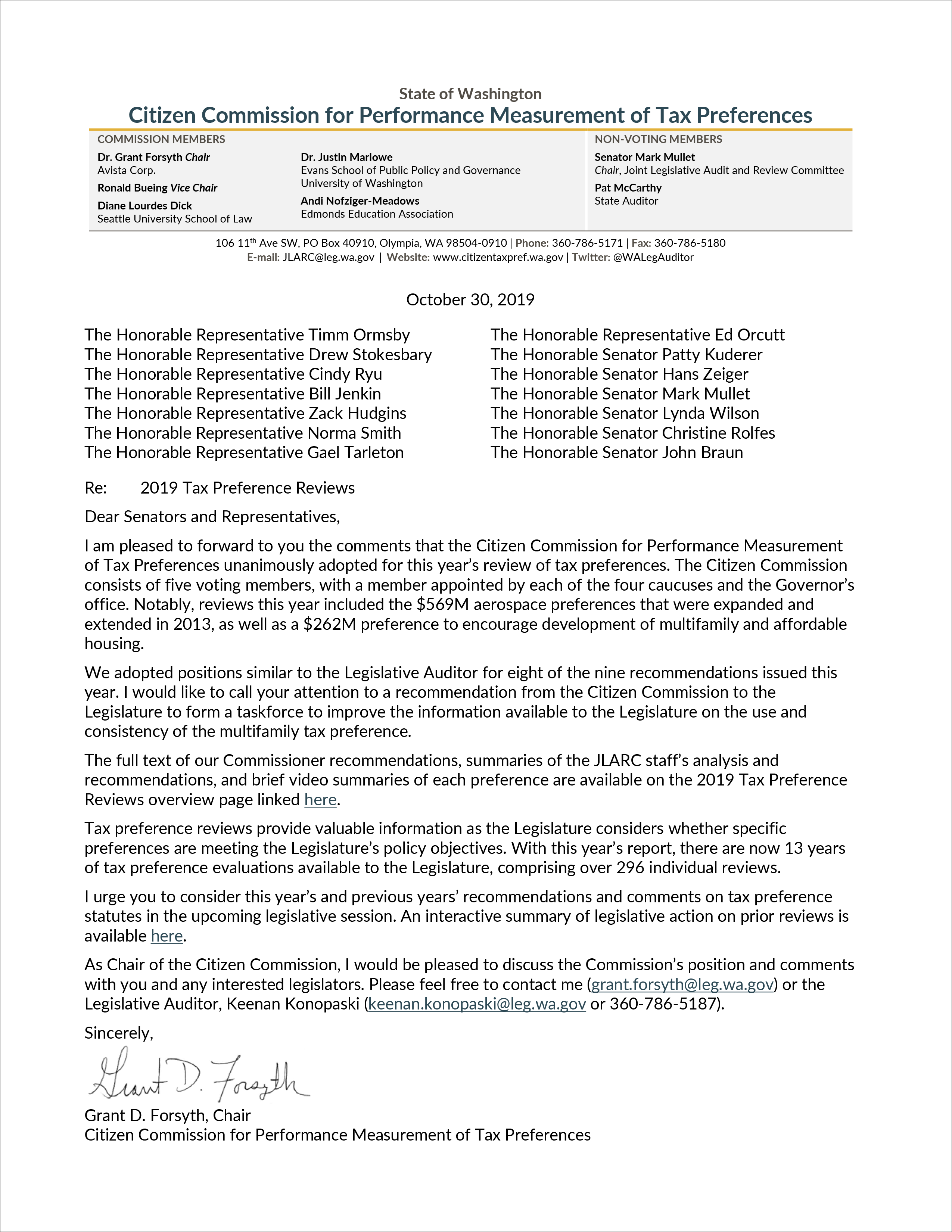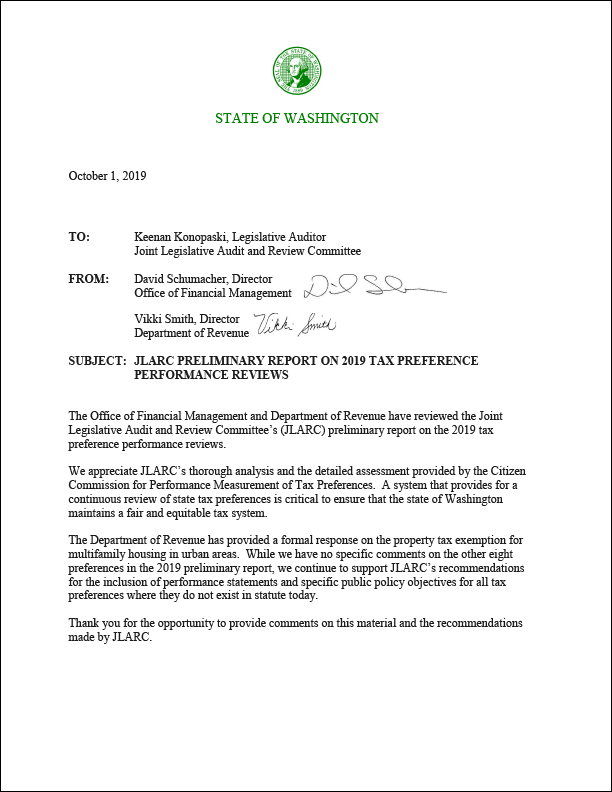Preference achieves inferred public policy objective
The Legislature did not state a public policy objective when the preference passed in 2010. JLARC staff infer an objective based on information provided by the Department of Revenue and the airlines impacted.
| Objective (Inferred) | Results |
|---|---|
| Provide targeted financial relief to commercial airlines headquartered in Washington by exempting out-of-state lenders from owing B&O tax on their loan income. The airlines typically pay these taxes as part of their loan agreements with the financial institutions. | Met. The preference is providing targeted financial relief to two commercial airlines headquartered in Washington. Alaska Airlines and Horizon Air Industries have both benefited to date. |
Recommendations
Legislative Auditor's Recommendation: Clarify the intent and duration
The Legislature should clarify the intent and duration of the tax preference. If the preference is intended to provide targeted financial relief to Washington-based airlines, the Legislature should add a performance statement and determine whether the relief is meant to be permanent or time-limited.
More information is available on the Recommendations Tab.
Commissioners' Recommendation
The Commission recommends continue and clarify intent only. Given the Legislature did not add an expiration date in 2010, it can be inferred the tax preference was not intended to be time limited. However, the Legislature should add an explicit performance statement. This would bring it in line with the Legislature’s current requirement that similar tax arrangements have an explicit performance statement. Such a statement would aid future reviews by removing any ambiguity about the Legislature’s intent.Committee Action to Distribute Report
On December 4, 2019 this report was approved for distribution by the Joint Legislative Audit and Review Committee.
Action to distribute this report does not imply the Committee agrees or disagrees with the Legislative Auditor recommendations.



